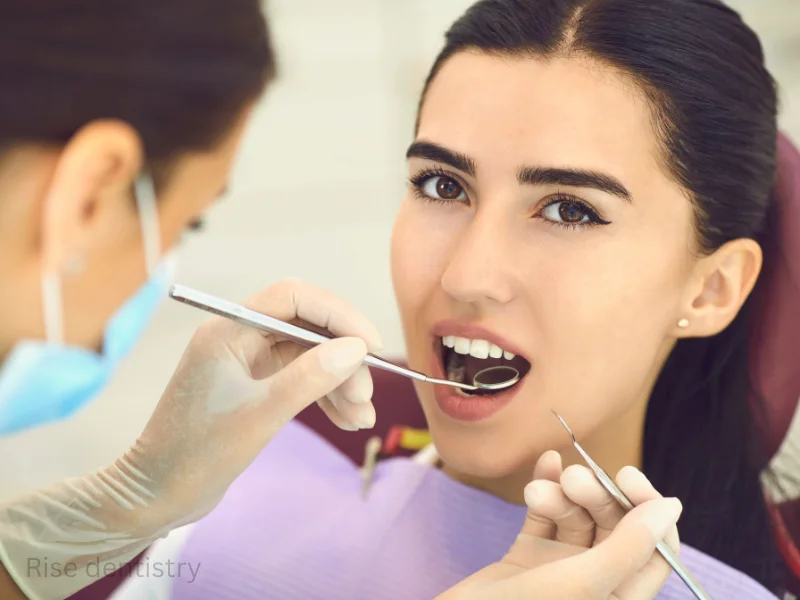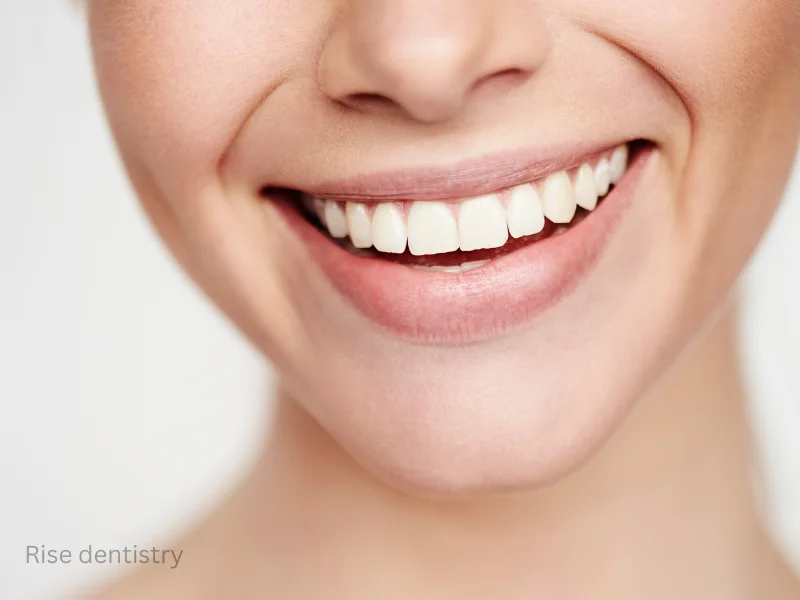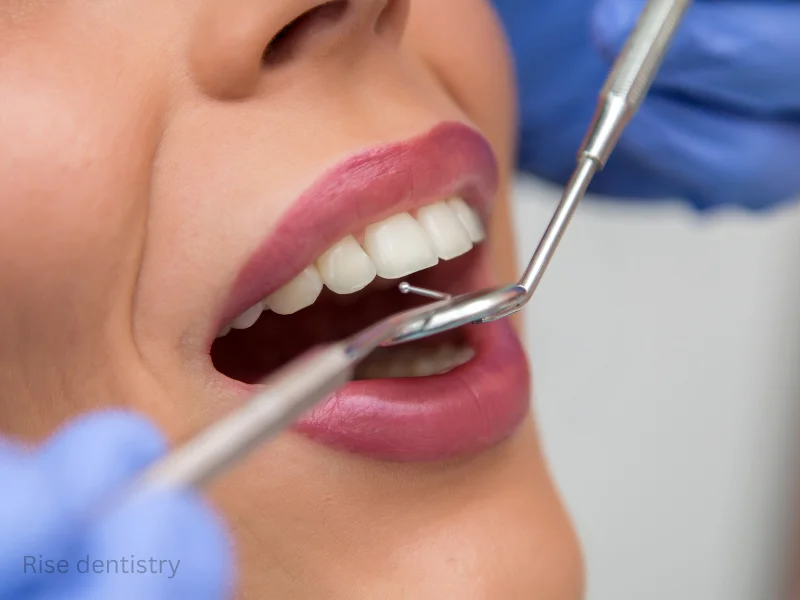
Stay on top of your oral health! Learn how safe dental cleanings during pregnancy protect both you and your baby.
Pregnancy is a beautiful journey, but it often comes with many questions about health and safety. One common concern is whether it’s safe to visit the dentist. Many moms-to-be wonder if teeth cleaning during pregnancy could affect their baby. Hormonal changes during this time can cause gum sensitivity, bleeding, or even swelling. That makes professional care for your mouth more important than ever.
The good news is that a dental cleaning during pregnancy is not only safe but also highly recommended. Cleanings help lower the risk of infection and protect both you and your baby’s health. Still, concerns about other dental procedures while pregnant—like fillings or X-rays—are very common. In this blog, we’ll answer your questions, share safe practices, and explain the best time for treatments.
During pregnancy, your body goes through many changes, and your mouth is no exception. Maintaining regular pregnancy and dental cleaning helps you keep gums and teeth healthy while supporting overall wellness.
Hormonal shifts can bring symptoms like sore, swollen, or bleeding gums. These changes increase the risk of gum disease and infection. Even women with good brushing habits may notice new problems in pregnancy in pregnancy That’s why professional cleanings are especially important.
Studies show a connection between dental problems and pregnancy outcomes.Gum disease during pregnancy may increase the chances of early labor and babies with lower birth weight. Protecting your mouth now not only benefits you but also gives your baby a healthier start in life.

Pregnancy can increase the chance of certain oral health issues. Hormonal changes often lead to gingivitis, which causes swelling and bleeding gums. This gum sensitivity can make daily brushing feel uncomfortable, but regular checkups with a hygienist can help.
Cravings and morning sickness may also affect your teeth. Frequent snacking or vomiting can weaken enamel, raising the risk of cavities. A tooth infection while pregnant can be painful and may require professional treatment to protect both mother and baby.
Some women also notice harmless growths on their gums called pregnancy tumors. While not cancerous, they can cause irritation or bleeding. These conditions highlight the connection between dental problems and pregnancy, showing why preventive care matters throughout this important time.


Many women wonder if visiting the dentist during pregnancy is safe. The answer is yes. A routine dental cleaning during pregnancy is completely safe for both mother and baby. In fact, dentists encourage it because cleanings help prevent serious oral health issues.
Professional cleanings remove plaque and tartar that brushing and flossing alone cannot reach. A skilled hygienist gently cleans your teeth, lowers the chance of infection, and keeps your gums healthy. This care is especially important during pregnancy, when hormonal changes can increase gum problems.
Choosing a trusted dentist for pregnant women means you receive care tailored to your needs. Regular cleanings help protect your smile, reduce discomfort, and support your overall health. A simple dental visit can make a big difference in keeping you and your baby safe.

Treating cavities with fillings or placing crowns is safe in pregnancy. These procedures prevent decay from spreading and lower the risk of infection, protecting both mother and baby.
If a tooth is severely damaged or infected, an extraction may be needed. Local anesthesia is safe, and removing the tooth helps prevent complications.
A root canal is necessary when a tooth becomes infected. This treatment removes infection, preserves the tooth, and supports overall dental care during pregnancy.
A deep dental cleaning (scaling and root planing) is often recommended for gum disease. It reduces inflammation, removes harmful bacteria, and is safe in pregnancy.
Cosmetic treatments like whitening, veneers, or implants are elective. It’s best to postpone them until after pregnancy for comfort and safety.

Not all dental procedures while pregnant need to wait. Treatments like fillings, crowns, and root canals are safe and help stop decay or infection. Getting care at the right time protects both you and your baby.
A tooth extraction may also be needed if a tooth is badly damaged. Local anesthesia is safe, and removing the infected tooth prevents serious problems. If you notice pain or swelling, it’s best to get treatment instead of delaying.
For gum disease, a deep dental cleaning can make a big difference. This safe procedure reduces gum swelling and bacteria. On the other hand, cosmetic treatments like whitening, veneers, or implants should wait until after delivery. These can be done later when comfort and safety are at their best.

Many moms-to-be worry about X-rays at the dentist. Modern digital X-rays use very low radiation. With proper shielding, the risk to your baby is extremely small. Dentists only take X-rays when truly needed, such as checking for decay or infection.
Local anesthetics like lidocaine are also safe in pregnancy. These numbing medicines are not harmful when used correctly. Dentists avoid strong drugs that could affect your baby, and instead choose safe options that let you stay comfortable during treatment.
Always tell your dentist about your pregnancy before any procedure. This helps them choose the safest care plan and avoid unnecessary risks. With good communication, you can receive the care you need without worry.

Brush twice a day with fluoridated toothpaste to maintain strong teeth. Floss daily to remove food and prevent infection or gum disease.
Pregnancy hormones can cause gum sensitivity. Rinse with alcohol-free mouthwash and brush gently to keep gums healthy and reduce bleeding.
Eat calcium-rich foods and drink plenty of water. These habits support teeth and gums and enhance overall dental care during pregnancy.


use fluoridated toothpaste to maintain strong teeth.

stop infection and protect your gums.

get safe, professional cleanings during pregnancy.

support good dental care during pregnancy.

catch small issues before they become bigger.
No, dental cleaning in pregnancy is not painful. A hygienist gently removes plaque and keeps your gums healthy.
Yes, always share this information. It helps your dentist adjust dental procedures while pregnant to reduce any risk.
Brush twice daily, floss, eat a balanced diet, and schedule regular visits with a dentist for pregnant women.
Modern digital X-rays are safe with shielding. They help prevent untreated infection, which can be riskier for you and your baby.
Yes, mouthwash pregnancy is safe if alcohol-free. Fluoridated toothpaste helps maintain dental care during pregnancy and prevents cavities.

Dental cleaning during pregnancy is safe and highly recommended. It helps protect your smile and lowers the risk of gum disease or cavities. Good oral health also supports your baby’s healthy growth.
To stay confident and comfortable, always maintain dental care during pregnancy with the help of a trusted dentist for pregnant women at Rise Dentistry. Regular visits, safe treatments, and proper daily care make a real difference. Book your appointment today at Rise Dentistry and give both yourself and your little one the healthiest start possible.

EXCELLENTTrustindex verifies that the original source of the review is Google. "For years, I avoided the dentist due to my anxiety. Dr. Hassan sorathia and their team completely changed my perspective. The office has such a calming atmosphere, and the staff is compassionate and understanding. They explained every step of my treatment and made sure I was comfortable. I'm so grateful I found them and can now take care of my teeth without fear."Posted onTrustindex verifies that the original source of the review is Google. Rise was amazing! They extracted a wisdom tooth from me and the experience was completely pain free. Thank you so much!Posted onTrustindex verifies that the original source of the review is Google. I’m so grateful I found Dr. Sorathia and his wonderful staff at Rise Dentistry! From the moment I called, his office was incredibly accommodating and got me in immediately. He was professional, kind, and patient, and he truly understood my dental anxiety. I never felt rushed or pressured and he welcomed all my questions and explained each step of the process so I always knew what was happening. He made sure I understood all of my options, allowing me to make the most informed decision for my care. I left feeling comfortable, informed, and confident about my treatment. I will absolutely be returning to Dr. Sorathia and highly recommend him to anyone looking for a compassionate and thorough dentist.Posted onTrustindex verifies that the original source of the review is Google. I’m so glad I found this office! Staff is so kind and professional. They keep your comfort at the top of their priority list. Wish I had found them sooner! Can’t recommend this dentist enough!Posted onTrustindex verifies that the original source of the review is Google. Excellent Staff and Dr Sorathia very knowledgeable pleasant ambiance !Posted onTrustindex verifies that the original source of the review is Google. Had a great experience, no wait time, in and out. Everyone was friendly, informative and professional.Posted onTrustindex verifies that the original source of the review is Google. So refreshing to meet an HONEST dentist who isn’t trying to upsell you anything. Just tells you the facts doesn’t try to sway your opinion, just lays out the options based on facts and allows you to choose for yourself what works best for you. I definitely highly recommend!Posted onTrustindex verifies that the original source of the review is Google. Fantastic service! Had a bad tooth that was absolutely killing me for several days. I load going to the dentist so I don’t have a normal one. Set the appointment in the morning and got in that same day. The dentist explained saving versus extracting the tooth and 35 minutes later I was going home. He was extremely thorough and telling me what he was going to do and with the post office instructions. The staff both out front and his assistants were fantastic!! absolutely could not have asked for a better experience and he will be my dentist going forward.
© 2023-2025 Rise Dentistry. All rights reserved.